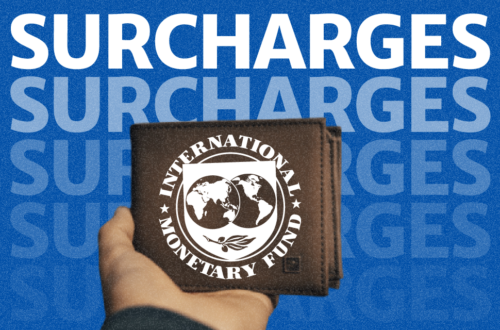
Article
IMF Reforms Are Welcome, But Surcharges Still Must Go
Discover the harmful impact of IMF surcharges and the need for their complete elimination. Explore the reforms announced and their implications for developing countries.
Oct 21, 2024
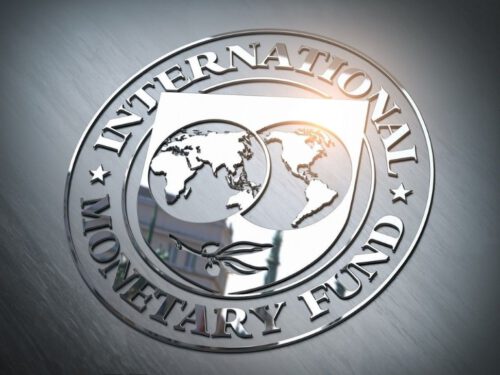
Article
Surcharge Reform: Three Scenarios for the IMF Board
Oct 7, 2024
By Andrés Arauz, Ivana Vasic-Lalovic
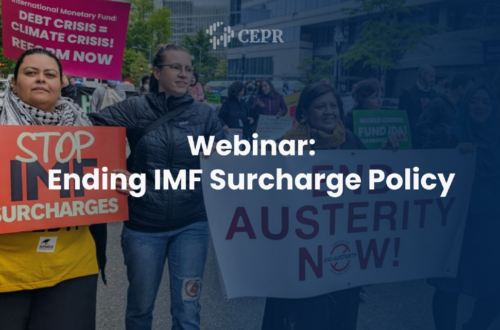
The Growing Impact of Surcharges
Sep 20, 2024
By CEPR

Article • Mark Weisbrot’s Columns
Mark Weisbrot’s Remarks from CEPR’s Webinar on Ending IMF Surcharge Policy – September 10, 2024
Sep 12, 2024

Report
The Case for the Complete Removal of IMF Surcharges: Historical Precedents and a Growing Burden
Jul 30, 2024
Report
A Broader Impact Than Ever Before: An Updated Estimate of the IMF’s Surcharges
This paper presents an estimate of IMF surcharges updated as of February 2024. It shows that 22 countries are now subject to surcharges, a net increase of 6 since our 2023 estimate.

Article
The IMF’s Effective Lending Rate for Large Borrowers Is Now at Over 8 Percent
The IMF is considered a “super-senior” creditor for developing countries, but it is now charging over 8 percent for disbursements to its most indebted borrowers, due in part to surcharges.

Article
International Monetary Fund Lifts Veil on Surcharges
The IMF’s own data supports widespread concerns that the surcharge policy presents a tremendous burden on heavily indebted countries, which is only growing.

Article
No More Excuse for Surcharges: the Target for Precautionary Balances Has Been Reached
New calculations negate one of the main rationales the IMF has put forward to justify its unfair, unnecessary, and counterproductive surcharge policy.
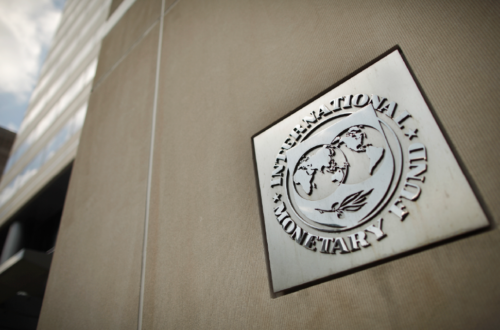
Article
The IMF Must End Its Hypocrisy on Climate
The IMF must be brought into the twenty-first century if it is to play a constructive role in ending the climate crisis.

Report
The Growing Debt Burdens of Global South Countries: Standing in the Way of Climate and Development Goals
Nearly 80 low- and middle-income countries are considered by international institutions as being in or at risk of debt distress.
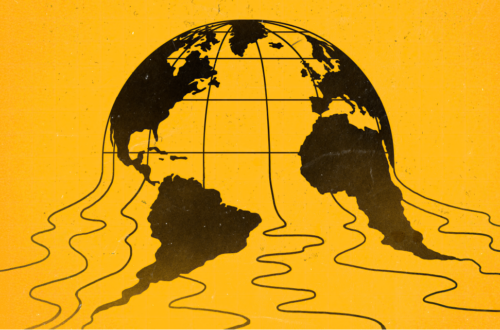
Article
IMF Surcharge Fees Hurt Those the Fund Is Meant to Help
In theory, IMF “surcharges” dissuade borrowers from depending on IMF credit. In practice, they punish the countries least equipped to pay, siphoning vital resources from social spending.

Report
The Growing Burden of IMF Surcharges: An Updated Estimate
The International Monetary Fund (IMF) imposes additional fees on loans to its most indebted middle-income borrowers, on top of regular interest payments and service fees.

Article
Biden Wants to Outlaw “Junk” Fees for Americans, But His Administration Can Also Stop Hidden Charges that Hurt Poor Countries
While Biden is going after exploitative, hidden fees at home, there are other exploitative, hidden fees impacting the lives of hundreds of millions of people around the world.

Article
IMF Surcharges Can Be Removed as Precautionary Balances Are Safely Within Target
With the IMF projecting a steady increase in the amount of countries that will pay surcharges, largely as a result of external economic shocks, it is the right moment for surcharges to be safely terminated.

